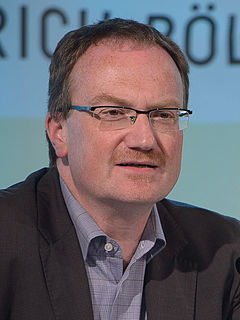A Quote by Graciela Chichilnisky
Changing an economic system that is bent on uncontrolled and poorly measured economic growth and depends on fossil energy for its main objectives, is much more difficult than changing how nuclear energy is used for military purposes. Some think it may be impossible.
Related Quotes
China is a main energy consumer and, therefore, is also a big greenhouse gas emitter. We must use energy resources rationally and must conserve. This needs us to adjust our economic structure, transform the mode of development, to make economic development more dependent on progress of science and technology and the quality of the work force.
This curious faith is predicated on the notion that we will soon develop unlimited new sources of energy: domestic oil fields, shale oil, gasified coal, nuclear power, solar energy, and so on. This is fantastical because the basic cause of the energy crisis is not scarcity: it is moral ignorance and weakness of character. We don't know how to use energy or what to use it for. And we cannot restrain ourselves. Our time is characterized as much by the abuse and waste of human energy as it is by the abuse and waste of fossil fuel energy.
Improved energy productivity and renewable energy are both available in abundance—and new policies and technologies are rapidly making them more economically competitive with fossil fuels. In combination, these energy options represent the most robust alternative to the current energy system, capable of providing the diverse array of energy services that a modern economy requires. Given the urgency of the climate problem, that is indeed convenient.
You can have a strong economy or you can help the environment, but you can't do both at the same time. That's ridiculous. In fact, as a sustainable vision for a healthy economy has to involve changing our energy policy and changing with respect to the natural world. Because we're hitting nature's thresholds, we're hitting nature's limits with respect to water and crop yields and energy use and fossil fuels heating the atmosphere at the same time we're past global peak and running out of that.
My one concern is that Hu Jintao may overestimate how much power China has in Pyongyang. They have - they do have influence, and they do have companies, and they do have economic relationships that could make life much more difficult in the north. Their balancing act is, "How much worse can we make it in the north without creating that which scares us more than anything, which is a collapse in the north." And then what happens to all those nuclear weapons. So they're going to work very hard to avoid that.
There are a lot of different ways of building a prosperous society, and some of them use much less energy than others. And it is possible and more practical to talk about rebuilding systems to use much less energy than it is to think about trying to meet greater demands of energy through clean energy alone.































